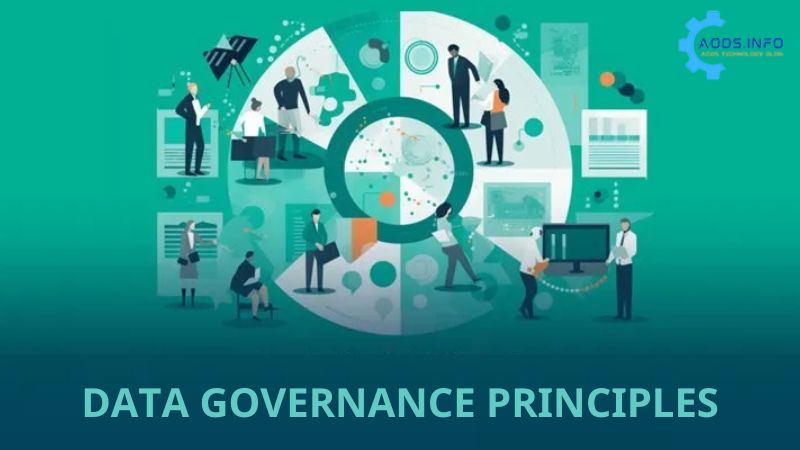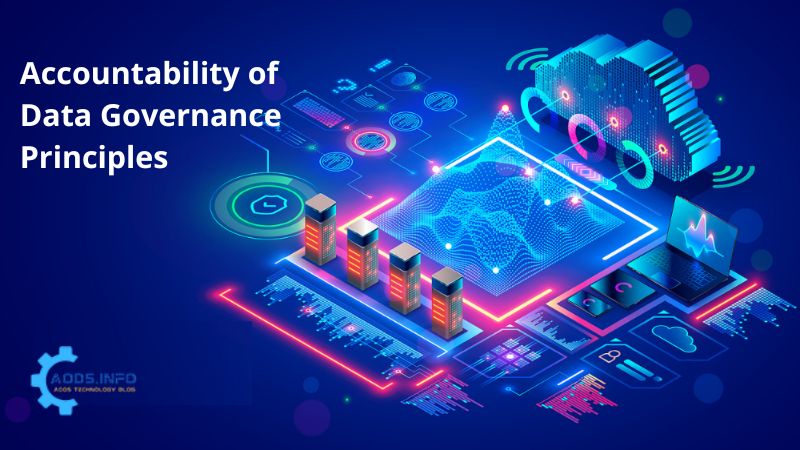In today’s digital era, data has emerged as a strategic asset for organizations across industries. The ability to collect, analyze, and leverage data effectively can drive innovation, enhance decision-making, and fuel competitive advantage. However, with the increasing volume, variety, and velocity of data, organizations face significant challenges in managing and governing their data assets. At Aods.info, this is where data governance principles come into play, providing a comprehensive framework for ensuring the integrity, confidentiality, and availability of data while maximizing its value.
Contents
Data Governance Principles for Organizational Success
Data governance principles serve as guiding tenets for organizations seeking to establish robust processes and policies for managing data throughout its lifecycle. By adhering to these principles, organizations can enhance accountability, transparency, and compliance while fostering a culture of data stewardship and collaboration.
1. Accountability:
At the core of effective data governance is accountability. Organizations must clearly define roles and responsibilities for managing and overseeing data assets. This involves appointing data stewards, data custodians, and other relevant stakeholders who are accountable for the quality, security, and usability of data. By assigning accountability, organizations ensure that individuals are held responsible for the proper handling and governance of data governance principles.
2. Transparency:
Transparency is essential to building trust and confidence in data-related processes. Organizations must be transparent about how data is collected, processed, stored, and used. This includes communicating data governance policies, procedures, and practices to all stakeholders, ensuring they understand the purpose and scope of data governance efforts. Transparent communication fosters trust among stakeholders and promotes a shared understanding of data governance principles across the organization.
3. Integrity:
Data integrity is paramount for ensuring the accuracy, consistency, and reliability of data. Organizations must implement measures to maintain data integrity throughout its lifecycle, from collection to disposal. This involves validating data inputs, implementing data quality controls, and monitoring data changes to detect and prevent errors or inconsistencies. By upholding data integrity, organizations can rely on data governance principles to make informed decisions and drive business outcomes.
4. Confidentiality:
Protecting sensitive or confidential data from unauthorized access, disclosure, or use is a fundamental aspect of data governance. Organizations must implement robust security measures, such as encryption, access controls, and data masking, to safeguard sensitive data from internal and external threats. Compliance with data privacy regulations, such as GDPR and CCPA, is essential for ensuring the confidentiality of personal and sensitive information. By prioritizing confidentiality, organizations demonstrate their commitment to protecting data governance principles and maintaining trust with stakeholders.
5. Availability:
Data must be available and accessible to authorized users when needed to support business operations and decision-making processes. Organizations must ensure the availability of data through data governance principles, such as redundancy, backup, and disaster recovery planning. This involves implementing robust data management practices and technologies to minimize downtime and ensure continuity of operations. By prioritizing data availability, organizations can maximize the value of their data assets and drive business agility and innovation.
6. Compliance:
Adherence to legal, regulatory, and industry requirements is critical for effective data governance. Organizations must stay abreast of evolving data privacy, security, and compliance regulations and ensure compliance with data governance principles. This includes conducting regular audits, assessments, and reviews to identify and address compliance gaps. By prioritizing compliance, organizations mitigate legal and regulatory risks and uphold the trust and confidence of stakeholders.
7. Quality:
Data quality is essential for ensuring the reliability and accuracy of data-driven insights and decisions. Organizations must implement data governance principles to maintain high standards of data quality. This involves implementing data validation, cleansing, and enrichment processes to ensure data accuracy, completeness, and consistency. By prioritizing data quality, organizations can enhance the trustworthiness and usability of their data assets, driving better business outcomes.
8. Responsiveness:
Timely response to data-related inquiries, incidents, and requests is crucial for effective data governance. Organizations must establish processes and protocols for addressing data governance principles, such as data access requests, data breaches, and data quality issues. This involves implementing incident response plans, escalation procedures, and communication channels to facilitate timely resolution of data-related issues. By prioritizing responsiveness, organizations demonstrate their commitment to data governance principles and ensure the reliability and integrity of their data assets.
9. Collaboration:
Collaboration among stakeholders is essential for driving successful data governance initiatives. Organizations must foster a culture of collaboration and communication among data owners, stewards, users, and IT professionals. This involves promoting cross-functional teamwork, sharing knowledge and best practices, and aligning data governance efforts with business objectives. By prioritizing collaboration, organizations can leverage the collective expertise and insights of stakeholders to optimize data governance principles and maximize the value of their data assets.
10. Continuous Improvement:
Continuous assessment and improvement are key to maintaining the effectiveness of data governance initiatives. Organizations must regularly evaluate data governance processes, policies, and technologies to identify areas for enhancement. This involves soliciting feedback from stakeholders, monitoring key performance indicators, and adapting data governance strategies to evolving business needs and regulatory requirements. By prioritizing continuous improvement, organizations can ensure the relevance and sustainability of their data governance efforts over time.
Final Thought
In conclusion, data governance principles provide a comprehensive framework for managing and governing data effectively within organizations. By adhering to these principles, organizations can enhance accountability, transparency, and compliance while maximizing the value of their data assets. By prioritizing data governance, organizations can navigate the complexities of the data landscape and drive sustainable business success in the digital age.




